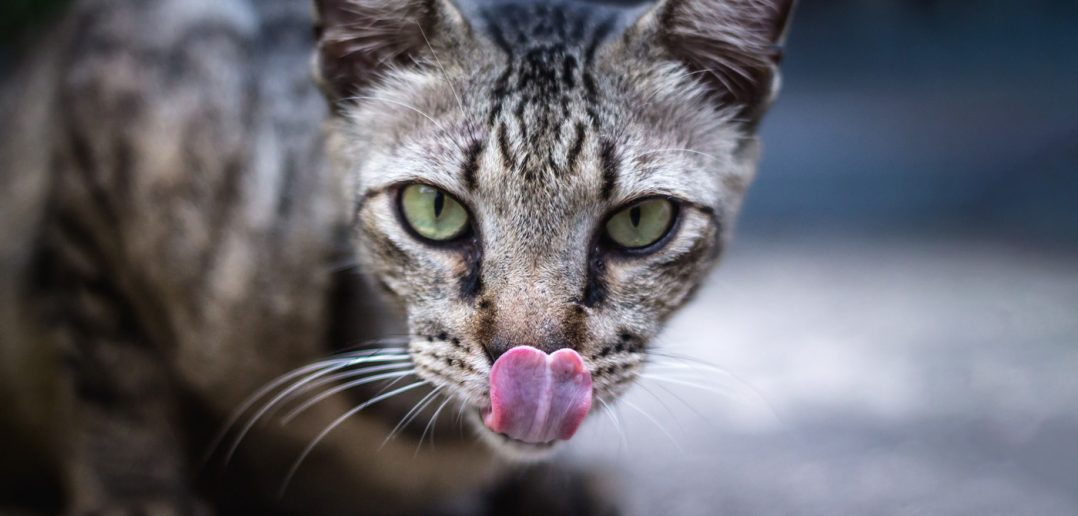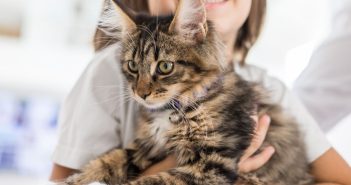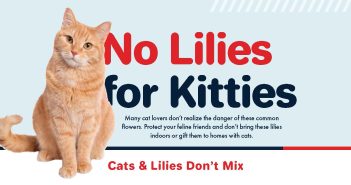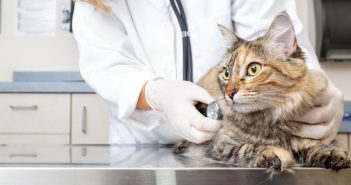There’s significant research available on the benefits of probiotics for humans, and it makes sense they’d be likely to benefit all mammals (including cats) in a similar way.
Probiotics boost favorable conditions for good bacteria present in the small intestine. However, the strain of bacteria present in cat probiotics is different than that of humans. But again, probiotics improve gut health, promote digestion, boost immunity, and improve overall health and well-being. Nevertheless, there is research yet to be done on how exactly probiotics work.
There are a lot of cat probiotic supplements available on the market. But before you decide to give your pets any probiotics, please consult your vet. This article discusses the different forms of probiotics and how you can give it to your cat.
Most cat probiotics are available in these forms: treats, powder, pills, and paste.
Cat Probiotics in Powder Form
This is the most common form of cat probiotics vets recommend. You will have to sprinkle the powder on your cat’s meal in the instructed amount. That way, your cat will ingest probiotics in small amounts every time he eats. Ethan from Catlovesbest says, “This method works for even finicky cats as these powder supplements come in different flavors. Powder probiotic supplements also have other essential nutrients required so that you won’t have to buy separate nutritional supplements.”
Giving Probiotic Pills to Your Cat
Let’s face it, we all have had hard times persuading cats to swallow medicines. You will have to conceal the probiotic tab in a treat and trick your cat. A treat will mask the peculiar flavor of the pill and also your cat will likely eat the entire thing because it’s, anyway, his favorite tret.
If not the treat, you can also use food, for instance, baked or boiled chicken to hide the pill. The size of it is the same as a normal human vitamin pill and can easily be swallowed concealed in a piece of food.
You can also let your feline swallow the pill directly without using food or treats. Take the kitty in your lap and gently pry open his mouth and slide it in. Wait for your cat to ingest it and keep his mouth closed until then. Once you see he has swallowed the pill, you can release him.
Most importantly, do not encourage to swallow it if your cat protests and respond aggressively. This will make everything worse and may also invite behavioral issues.
Cats are notorious and may spill out the pill as soon as you release them. Check their mouth after they swallow the pill to make sure it has gone down. Cats hold unwanted tablets in their mouth and spit out upon release. Pry open their mouth and look inside and wait for some moments to be sure that he has swallowed it.
Cat Probiotic Treats
You can find cat probiotic treats in your nearby pet store or on Amazon easily. The benefit of this method is your cat won’t protest having these treats and there’s no coercing required. Consult with your vet before choosing probiotic treats as you might use them excessively and feed more calories than required.
Cat Probiotic Paste
This method includes feeding cat probiotic paste using a syringe. Fill the syringe and feed a small amount at a time. Wait for your cat to gulp it down and repeat the procedure until the syringe is empty. Also, make sure that you don’t overfill the syringe than the prescribed amount.
If nothing works, you can consult your vet and ask for the solution. The veterinarian will be able to coerce your cat to ingest probiotics. This way your cat won’t associate negative feelings with you and the task would be done easily.
Does Your Cat Need Probiotics?
You should start looking for probiotics when your cat often has diarrhea and/or other digestive issues. Diarrhea is an initial indication of many major GI problems, so giving probiotics may prevent future health problems. Be sure to talk it over with your vet, too, of course.
Frequent diarrhea can make your pet uneasy and taking probiotics can fix the balance of good and bad bacteria in the small intestine thereby tackling the problem. Nevertheless, it is important to note that probiotics will change the bacterial environment in intestines and cats may also get diarrhea due to that. But this should stop after a few days once your cat adjusts to probiotics.
If diarrhea doesn’t stop even after taking probiotics, you should consult your vet as soon as possible to start treatment from that point.
Another instance when you should think of giving your cat probiotics is if your cat gets sick often. Falling sick frequently is directly associated with poor gut health and immunity. Whereas, better gut health boosts better absorption of essential nutrients from the food and ultimately improves immune power.
The End Note
Probiotics are more like a preventive measure rather than curing symptoms. You should continue giving probiotics on a daily basis if your cat has benefited from it. While kittens do not need probiotics if they do not have any digestive issues, probiotics can save your adult or senior cats from future possible digestive disorders and diseases. I hope the information in this article helps you and your feline furball!




